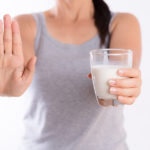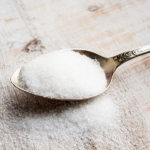By Bonnie Jenkins, Advanced Natural Wellness
The term “disco inferno” may bring back fond memories, but an inferno in your gut certainly won’t have you dancing! I’m not talking about the run-of-the-mill heartburn that happens when you eat too much or too fast. I’m talking about the intense burn that occurs more than twice a week, no matter what you eat.
GERD is a growing problem. In fact, more than 35 percent of Americans are thought to suffer from this burning issue. Although GERD can affect people of all ages – including children – statistics show that the risk increases as you age and tends to rise dramatically after age 40. And, when it strikes, most people with GERD either reach for an antacid or take proton pump inhibitors like Prilosec and Nexium. In fact, Americans spend $93 million for over-the-counter and prescription medications every year to relieve their GERD. But there are safer, simpler ways to extinguish the burn.
Digestion Dilemma
Your stomach is a very hearty organ. After all, the acid in your stomach can melt a nail! But your body is designed to handle this super-corrosive compound with a stomach lining that rejuvenates itself hourly. For some of us though, the well-designed system backs up like traffic in rush hour.
Here’s what happens: The muscular ring called the lower esophageal sphincter is weakened. As a result, the flap that separates the stomach from the esophagus doesn’t close properly. Stomach acid backwashes into the esophagus – an area of the body that isn’t designed to handle highly acidic gastric juices. Technically, this is called “acid reflux,” but if you’ve encountered this burning feeling, you probably called it misery.
Open your arteries, improve blood flow for a new health miracle...
Did you know your circulatory system has over 60,000 miles of arteries, veins and other blood vessels, if stretched end to end?
But as you age, your blood vessels undergo changes, which may cause them to stiffen, thicken and get clogged.
GOOD NEWS! Doctors have now identified a “Miracle Molecule” inside your arteries that helps OPEN your arteries and IMPROVE blood flow.
It’s what Dr. Valentin Fuster calls it, "One of the most important discoveries in the history of cardiovascular medicine."To you, that means...
- Healthy blood pressure
- Sharper mind and memory
- Skyrocketing energy and muscular strength
- Increased pleasure and passion in the bedroom
- Improved circulation to every cell and organ in your body
Go here to discover a new natural way to significantly boost the levels of this miracle molecule in YOUR body NOW!
Cause and Effect
Science hasn’t figured out what causes GERD. But, given that it is a fairly recent problem in our culture, there are some possible contributing factors we all need to be aware of. One possible factor is how much we eat. Our super-value meals have super-sized our waistlines. Your stomach is actually designed to hold about the same amount of food as you can hold in your two hands. But, routine overeating puts a strain on the esophageal sphincter.
Compounding our problem of portion size is what our food has become – we no longer eat fruits and vegetables from our backyard or local farm. According to Johns Hopkins University, our food travels an average of 1,200 miles to get to our grocery stores. Produce is frequently harvested before it’s fully ripe and has been grown in soil that is often depleted of the minerals we all so desperately need.
One of the key culprits in the American diet is caffeine. Not only does caffeine produce an over abundance of acid, it is also a mild diuretic and flushes out calcium and magnesium. If you have more than three cups of caffeinated beverages a day, you are probably deficient in magnesium. Magnesium deficiency can actually initiate stomach spasms that can cause or worsen symptoms of heartburn.
Tame the Flame
The key to extinguishing the fire is to find out what aggravates your GERD. What sets your throat on fire may have no effect on someone else. Some foods are thought to relax the lower part of the esophagus, thus allowing acidic stomach contents to flow back into the esophagus; they include chocolate, peppermint, coffee, and alcohol. Other foods sometimes mentioned as troublesome include garlic, onions, tomato-based foods, spicy foods, and fatty foods. Keep a journal of everything you eat to help identify your trigger foods and then avoid them.
The World's Quickest Solution for Ending Prostate and Urinary Misery
This has recently been revealed to be one of the only real breakthroughs in prostate health.
The seeds of a strange fruit (sometimes called "Chinese Apples") hold powerful phytonutrients that are a revolution in prostate health.
In fact, UCLA and Veterans Administration research have now proved this to be true.
Not only that, but it may be the worlds quickest solution for ending prostate misery.
Simply stated, these phytonutrients represent a huge step beyond beta sitosterol, saw palmetto, and other phytosterols alone.
Simply click HERE if you want to have fast prostate relief...restful, uninterrupted sleep...no more constant "urges to go"...enhanced virility...and optimal prostate support for life.
Here are some other simple ways to ease your suffering:
- Avoid big meals. Abdominal distension and bloating aggravate symptoms.
- Don’t eat within three hours of bedtime.
- If you smoke, quit. Smoking increases acid secretion and dries out the saliva, which acts as a natural antacid.
- Use blocks to raise the head of your bed six inches. Propping your head with pillows won’t last all night.
- Sleep on your left side. Research suggests that left-side sleepers suffer less night-time heartburn.
- Exercise regularly to prevent reflux.
- Avoid fatty, fried, and salty foods.
- Eat high-fiber foods, like beans, lentils, whole grains, fruits, and vegetables. Research finds less reflux in people eating a high-fiber diet.
- Instead of popping an antacid, try licorice. Deglycyrrhizinated licorice root [DGL] protects the digestive tract from stomach acid by stimulating the production of substances that coat the stomach and esophagus.
The pain of GERD and the damage it can cause shouldn’t be ignored. Antacids may be okay for occasional heartburn, but they’re dangerous for everyday use. Acid blockers, which were once only available by prescription, have been linked to pneumonia, stomach ulcers, esophageal cancer, and osteoporosis. So again, use them sparingly, if at all.
Acid Trip
It’s counterintuitive, but sometimes heartburn and GERD aren’t the result of too much stomach acid. Instead they can be an indicator of low levels of betaine hydrochloric acid (Betaine HCl). In a healthy digestive system, the proper concentration of this stomach acid kills the unhealthy bacteria and fungi that are normally ingested with food. If the HCl concentration is too low, a chronic condition called hypochlorhydria develops. Surprisingly, hypochlorhydria affects up to half of the general U.S. population, especially the elderly, since stomach acid production naturally declines with age.
With low stomach acid, food can’t be broken down and digested easily; therefore, “bad” bacteria are allowed to survive. These bag bugs now have a good environment in which to multiply, since there is plenty of undigested food in the stomach for them to eat. The delicate balance between the good bacteria and bad bacteria throughout the digestive tract is lost.
Along with the burn, a low output of HCl can lead to chronic nutrient deficiencies, as the body’s ability to absorb vitamins, amino acids, and minerals becomes severely compromised. Bad bacteria, fungal overgrowths, and prolonged nutrient deficiency set the stage for many chronic conditions that go well beyond GERD.
One Last Thing …
The damage from GERD isn’t just limited to your throat and esophagus. Stomach acid can also damage your teeth and gums. If you suffer from GERD, avoid tooth whiteners. Most tooth-whitening products will cause you great pain or irritation if your mouth has been compromised by GERD. Try brushing with baking soda for a whiter smile.
Research Brief …
Despite the commercials claiming that high fructose corn syrup (HFCS) isn’t dangerous, studies show that this manmade sweetener raises the risk of fatty liver disease and obesity. And when it’s paired with trans fats, it also triggers inflammation, impairs insulin sensitivity, and boosts triglyceride levels.
But now there’s another reason to avoid HFCS. Almost half of tested samples of commercial HFCS contained mercury, which was also found in nearly a third of 55 popular, brand-name food and beverage products where HFCS is the first- or second-highest labeled ingredient, according to two new U.S. studies.
In the first study, published in the current issue of Environmental Health, researchers found detectable levels of mercury in nine out of 20 samples of commercial HFCS. In the second study, the Institute for Agriculture and Trade Policy, a non-profit watchdog group, found that nearly one in three of 55 brand-name foods contained mercury. The chemical was found most commonly in HFCS-containing dairy products like yogurt, salad dressings, and condiments like ketchup.
If you frequently buy these products, check the ingredient label. If you find HFCS, put it back. Opt, instead, for products made with real sugar. While sugar doesn’t win any nutritional points, it doesn’t contain toxic metals that can accumulate in the body.
References:
Dufault R, LeBlanc B, Schnoll R, et al. “Mercury from chlor-alkali plants: measured concentrations in food product sugar.” Environmental Health. 2009;8:2.
Fintelmann V. “Modern phytotherapy and its uses in gastrointestinal conditions.” Planta Medica. 1991;57:S48-52.
Pereira Rde S. “Regression of gastroesophageal reflux disease symptoms using dietary supplementation with melatonin, vitamins and aminoacids: comparison with omeprazole.” Journal of Pineal Research. 2006;41:195-200.






